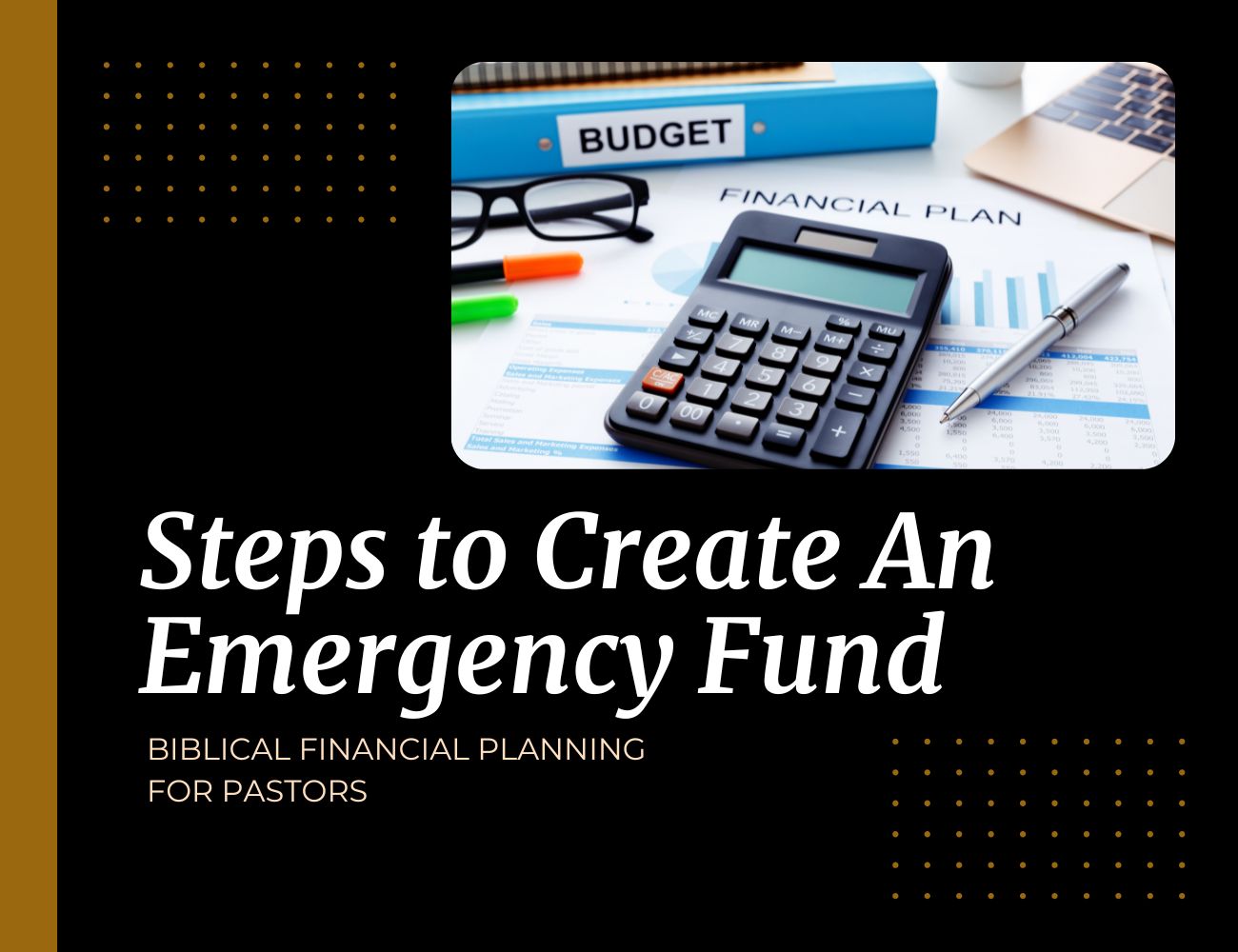Understanding the Importance of Retirement Planning
Planning for retirement as a pastor brings unique opportunities and challenges. Many pastors face financial hurdles that other professionals don’t encounter. According to a recent study by the National Association of Evangelicals, 29% of pastors have less than $10,000 saved for retirement.
You’re not alone in this journey. While ministry work focuses on eternal rewards, taking care of your financial future is a vital part of good stewardship. Research shows that pastors who start retirement planning early are better positioned to continue their ministry work even after formal retirement.
Assessing Your Financial Situation
The first step is understanding your current financial situation. Start by calculating your monthly income, including your salary, housing allowance, and any other benefits. A 2022 Barna study found that 90% of pastors receive some form of housing allowance, which can significantly impact retirement planning.
Key Considerations:
- Social Security – While some pastors opt out of Social Security for religious reasons, this decision requires careful thought. GuideStone Financial Resources reports that pastors who opt out often struggle to replace these benefits in retirement.
- Income Replacement – Financial experts suggest aiming to replace 70-80% of your pre-retirement income.
- Healthcare Costs – A Fidelity study estimates that an average retired couple at age 65 in 2023 may need approximately $315,000 saved for medical expenses.
Biblical Foundation for Financial Planning
God’s Word offers clear guidance about managing money wisely.
- Proverbs 21:5 – “The plans of the diligent lead to profit as surely as haste leads to poverty.”
- Genesis 41 – Joseph stored grain for seven years to prepare for a coming famine.
- Matthew 25:14-30 – Jesus praised the servants who invested wisely.
- 1 Timothy 5:8 – “Anyone who does not provide for their relatives… has denied the faith and is worse than an unbeliever.”
Planning ahead doesn’t show a lack of faith—it demonstrates wisdom. Just as Noah built the ark before the rain fell, pastors must prepare for retirement while trusting God.
Key Components of Pastoral Retirement Planning
- Social Security – Opting out of Social Security means finding alternative ways to cover retirement and Medicare benefits.
- Housing Allowance – Some pension and retirement plans allow this benefit to continue, reducing taxable income.
- Healthcare Planning – Medicare starts at 65, but additional savings or Health Savings Accounts (HSAs) are essential.
- Investment Strategies – Consider a mix of IRAs, Roth IRAs, and 403(b) plans for diversified growth.
- Emergency Fund – 3-6 months of expenses should be set aside to prevent dipping into retirement savings.
Practical Steps to Start Planning Today
- Create a Budget – List all income sources (salary, housing allowance, benefits) and expenses.
- Set Savings Goals – Aim to save 15% of your income for retirement.
- Open a 403(b) Account – These function like 401(k)s but are designed for pastors.
- Consult a Financial Advisor – Look for someone experienced in clergy tax laws.
- Start an Emergency Fund – 3-6 months of expenses in a separate account.
- Review Your Plan Quarterly – Adjust based on income, family needs, and ministry responsibilities.
Common Retirement Planning Mistakes to Avoid
- Starting Too Late – The earlier you begin saving, the more time your money has to grow.
- Relying Only on Church Pensions – Many church pension plans are underfunded.
- Lack of Diversification – Spread investments across multiple assets to manage risk.
- Ignoring Insurance Needs – Life insurance and disability coverage protect your family’s future.
- Poor Record-Keeping – Keep detailed financial records to maximize tax benefits and avoid IRS issues.
Teaching Financial Stewardship to Your Congregation
Pastors have a unique opportunity to educate their congregation on financial stewardship.
- Offer financial literacy workshops on budgeting, debt management, and retirement savings.
- Lead by example—share appropriate financial lessons from your own experience.
- Encourage small group discussions about biblical financial principles.
- Provide resources such as:
- Budget worksheets
- Debt payoff calculators
- Christian finance books
- Connections to financial counselors
Action Steps and Resources
First Steps to Take
- Calculate your retirement needs – Use free calculators from MinistryWorks.com.
- Meet with a financial advisor – Ensure they understand clergy tax laws.
- Review your Social Security status – Understand its impact on your retirement.
- Increase your savings – Start with at least 1% of your income.
Essential Tools
- Retirement Calculator – ChurchBenefits.org
- Budget Worksheet – Crown Financial Ministries
- Housing Allowance Guide – GuideStone Financial Resources
- Social Security Estimator – SSA.gov
Recommended Books
- The Minister’s Tax Guide by Richard Hammar
- Your New Money Mindset by Brad Hewitt
- Clergy Financial Management by Church Law & Tax
Professional Organizations
- National Association of Church Business Administration (NACBA)
- Church Benefits Association
- Christian Financial Advisors Network
Free Training Options
- GuideStone Financial Monthly Webinars
- Financial Peace University for Church Leaders
- Crown Financial Ministries Pastoral Resources
- Church Law & Tax Retirement Planning Courses
Conclusion
Taking even small steps today can help secure your financial future. Start with one action item this week and build from there. Stewarding your finances wisely allows you to continue serving God and your congregation, both now and in your retirement years.



